
Djizak: The Heart of Uzbekistan's Natural Beauty and Historical Charm
Nestled in the heart of Uzbekistan, Djizak is a vibrant city that offers a unique blend of natural beauty and historical charm. As you explore Djizak, you'll find yourself surrounded by stunning landscapes, from rolling hills to pristine rivers, making it an ideal destination for nature lovers. The city is also home to several ancient sites and monuments that tell the story of its rich cultural heritage. One of the highlights of Djizak is the Nuratau-Kyzylkum Biosphere Reserve, a haven for wildlife enthusiasts and hikers alike. Here, you can witness rare species of plants and animals, and take in breathtaking views of the Nuratau Mountains. The reserve is also home to traditional villages where you can experience the local way of life and enjoy the warm hospitality of the Uzbek people. In addition to its natural wonders, Djizak boasts a number of historical landmarks. The Sheikh Nurata Complex, with its ancient mosque and sacred spring, is a must-visit for those interested in the region's spiritual history. The complex is believed to have been founded by Alexander the Great, adding a layer of historical intrigue to your visit. Another notable site is the Jizzakh Fortress, which offers a glimpse into the city's past as a strategic military outpost. Djizak is also a gateway to some of Uzbekistan's most famous attractions, such as the Silk Road cities of Samarkand and Bukhara. Whether you're seeking adventure in the great outdoors or a journey through history, Djizak has something to offer every traveler.
Local tips in Djizak
- Visit in spring or autumn for the best weather and to see the Nuratau-Kyzylkum Biosphere Reserve in full bloom.
- Hire a local guide to explore the traditional villages and learn about the Uzbek way of life.
- Carry cash as many local markets and small shops do not accept credit cards.
- Plan a day trip to the nearby Silk Road cities of Samarkand and Bukhara for a deeper dive into Uzbekistan's history.
- Don't miss the chance to try local dishes like plov and shashlik at traditional eateries.
Djizak: The Heart of Uzbekistan's Natural Beauty and Historical Charm
Nestled in the heart of Uzbekistan, Djizak is a vibrant city that offers a unique blend of natural beauty and historical charm. As you explore Djizak, you'll find yourself surrounded by stunning landscapes, from rolling hills to pristine rivers, making it an ideal destination for nature lovers. The city is also home to several ancient sites and monuments that tell the story of its rich cultural heritage. One of the highlights of Djizak is the Nuratau-Kyzylkum Biosphere Reserve, a haven for wildlife enthusiasts and hikers alike. Here, you can witness rare species of plants and animals, and take in breathtaking views of the Nuratau Mountains. The reserve is also home to traditional villages where you can experience the local way of life and enjoy the warm hospitality of the Uzbek people. In addition to its natural wonders, Djizak boasts a number of historical landmarks. The Sheikh Nurata Complex, with its ancient mosque and sacred spring, is a must-visit for those interested in the region's spiritual history. The complex is believed to have been founded by Alexander the Great, adding a layer of historical intrigue to your visit. Another notable site is the Jizzakh Fortress, which offers a glimpse into the city's past as a strategic military outpost. Djizak is also a gateway to some of Uzbekistan's most famous attractions, such as the Silk Road cities of Samarkand and Bukhara. Whether you're seeking adventure in the great outdoors or a journey through history, Djizak has something to offer every traveler.
When is the best time to go to Djizak?
Iconic landmarks you can’t miss
Jizzakh
Explore the vibrant city of Jizzakh in Uzbekistan, a cultural hub with rich history, stunning landscapes, and warm hospitality.
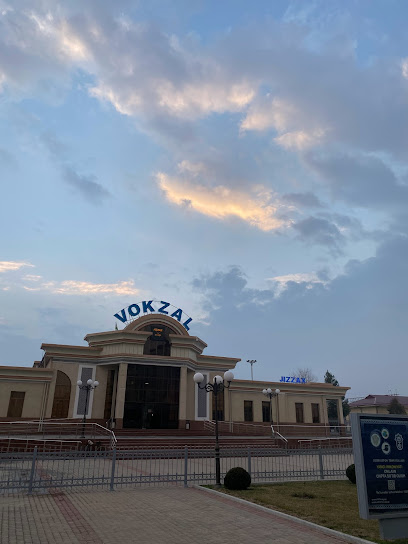
Qo'ytosh ko'li
Discover the serene beauty of Qo'ytosh Ko'li, a tranquil lake in Uzbekistan's Jizzakh Region, perfect for relaxation and nature exploration.
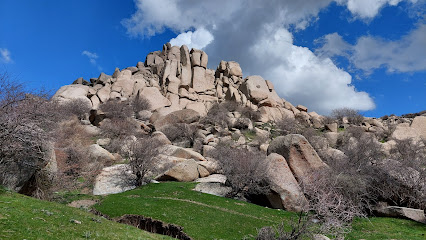
Zulfiya va Hamid Olimjon
Experience the tranquility and cultural richness of Zulfiya va Hamid Olimjon Park, a serene escape in the heart of Jizzakh, Uzbekistan.
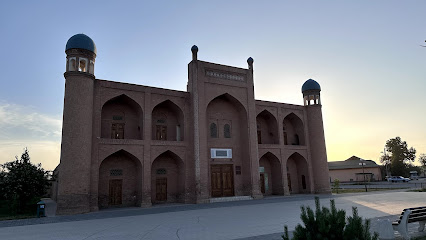
Дореволюционные здание
Explore Dorevelyucion, a captivating tourist attraction in Jizzakh Region, Uzbekistan, where history and culture blend beautifully.
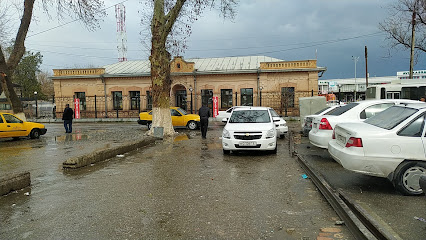
Памятник Хамиду Алимджану
Experience the serene beauty of Hamid Alimdjan Park in Jizzakh, Uzbekistan, a perfect retreat for nature lovers and cultural enthusiasts alike.
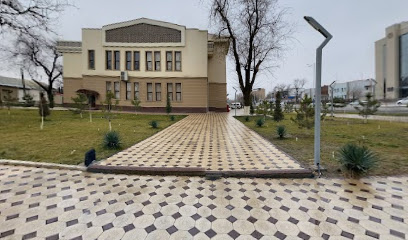
Zarbdor
Explore the tranquil oasis of Zarbdor Garden in Jizzakh, Uzbekistan, where nature's beauty and serenity await every visitor.

Haydar koʻl
Experience the serene beauty of Haydar Ko'l, a hidden gem in Uzbekistan's Jizzakh Region, perfect for relaxation and nature exploration.
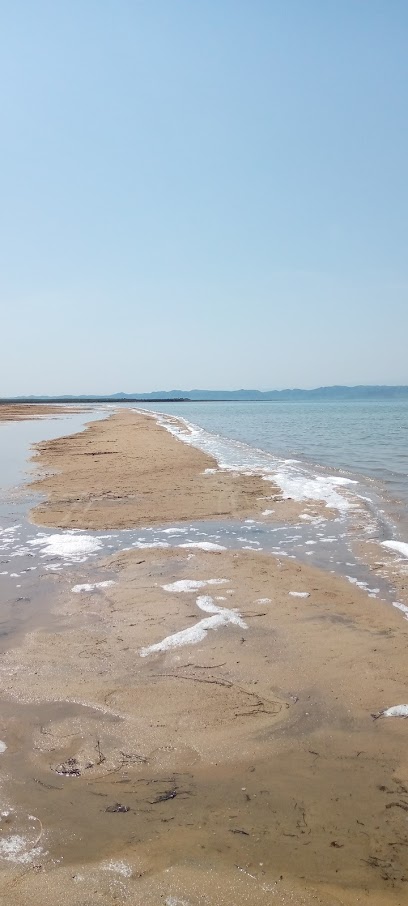
Памятник Озодлик (птица Хумо)
Discover the serene beauty of Ozodlik Park in Jizzakh, Uzbekistan, a perfect retreat for relaxation and family gatherings amidst nature's splendor.
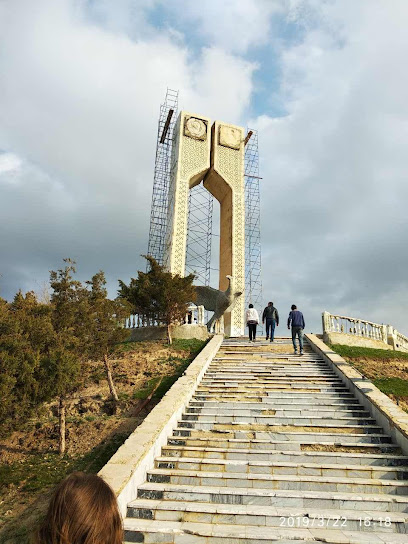
Xayrobod tepaligi
Explore the rich history and stunning architecture of Xayrobod Tepaligi, a must-visit historical landmark in Jizzakh Region, Uzbekistan.
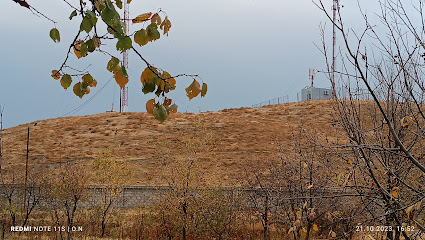
Pamyatniki Kh.alimzhona I Zul'fe
Explore the rich history and cultural significance of Pamyatniki Kh.alimzhona I Zul'fe, a remarkable landmark in Jizzakh Region, Uzbekistan.
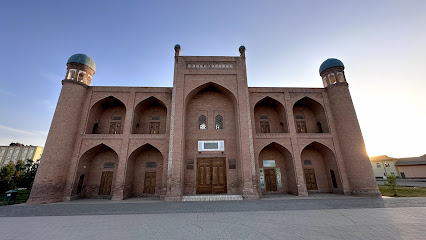
Zaamin
Explore the breathtaking landscapes and tranquil surroundings of Zaamin in Uzbekistan's Jizzakh Region, a paradise for nature lovers and adventure seekers.

Baxshi haykali
Explore the heart of Uzbek culture at Baxshi Haykali, a captivating tribute to the art of storytelling in Jizzakh, Uzbekistan.

Zomin
Explore Zomin in the Jizzakh region of Uzbekistan, where breathtaking landscapes and rich cultural experiences await every traveler.
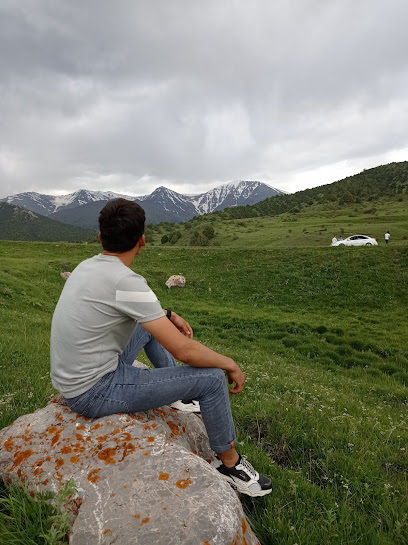
Quduq
Discover Quduq, an enchanting historical landmark in Uzbekistan's Jizzakh Region, where history meets breathtaking natural beauty.

Jizzax suvayirg’ichi
Explore Jizzax Suvayirg’ichi: Where Natural Beauty Meets Rich Uzbek Culture in the Heart of Uzbekistan.
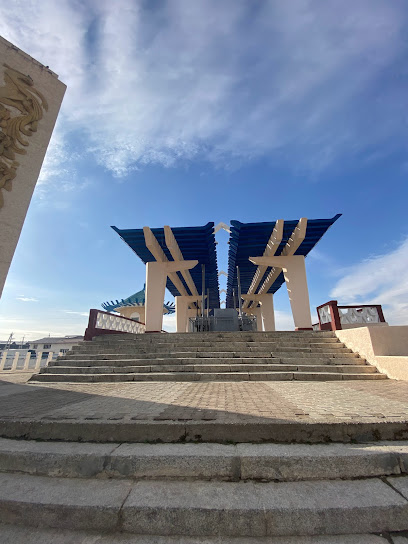
Unmissable attractions to see
Zomin dor yoli
Discover the breathtaking landscapes and rich heritage of Zomin dor yoli in Uzbekistan's Jizzakh region, a perfect blend of adventure and tranquility.
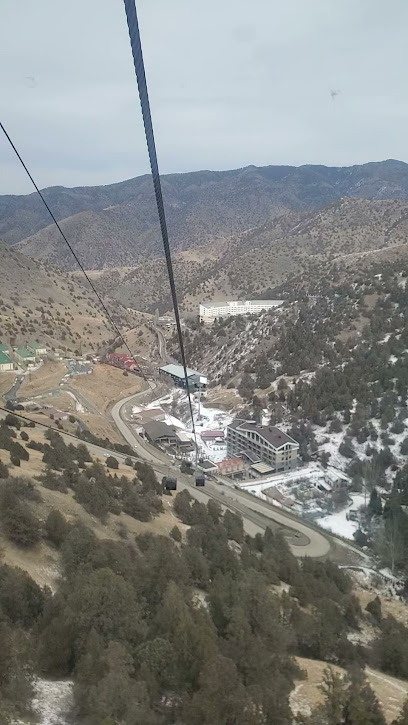
Qo'ytosh ko'li
Explore the tranquil beauty of Qo'ytosh Ko'li in Jizzakh Region, Uzbekistan, a perfect destination for nature lovers and adventure seekers.
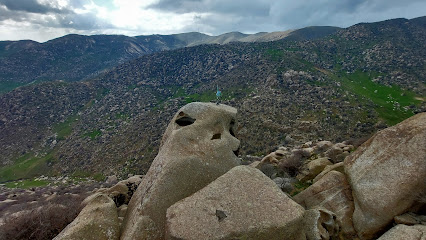
Zulfiya va Hamid Olimjon
Discover tranquility at Zulfiya va Hamid Olimjon Park, a lush oasis in Jizzakh, Uzbekistan, perfect for relaxation and cultural experiences.
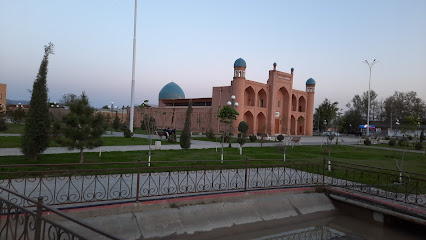
Zaamin National Park
Explore the breathtaking landscapes and rich biodiversity of Zaamin National Park in Uzbekistan, a true haven for nature lovers and adventure seekers.
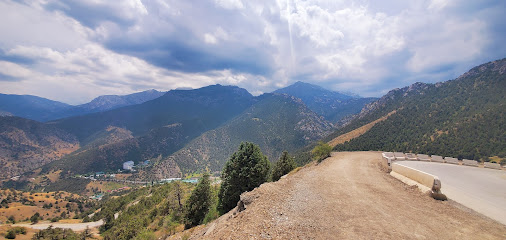
Zomin baxt ko'prigi
Explore the tranquil beauty of Zomin Baxt Ko'prigi, a serene bridge in Jizzakh region, where nature and culture converge in Uzbekistan.
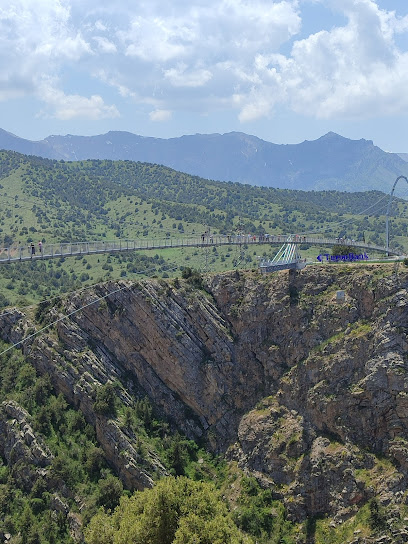
Ohaktosh tog’i
Discover the breathtaking beauty and rich culture of Ohaktosh Tog’i in Jizzakh Region, a true gem of Uzbekistan's natural landscape.
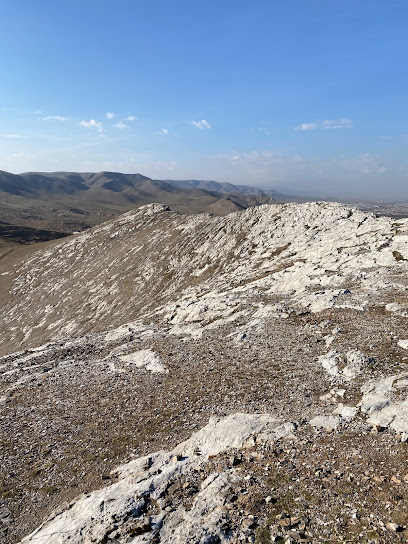
Qizuchgan
Explore the enchanting Qizuchgan in Uzbekistan, where stunning landscapes meet rich cultural heritage, creating an unforgettable travel experience.
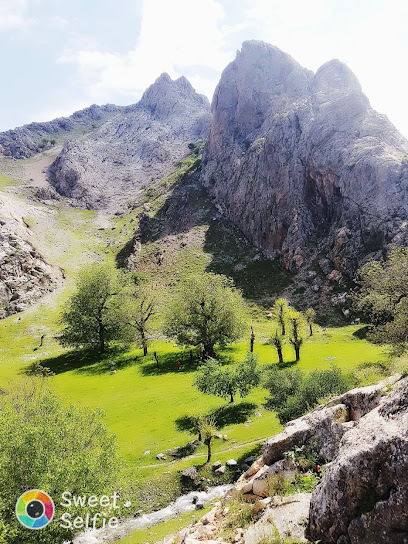
Zomin Dor yo'li
Unveil the breathtaking beauty of Zomin Dor yo'li in Uzbekistan's Jizzakh Region, where adventure meets tranquility amidst stunning landscapes.
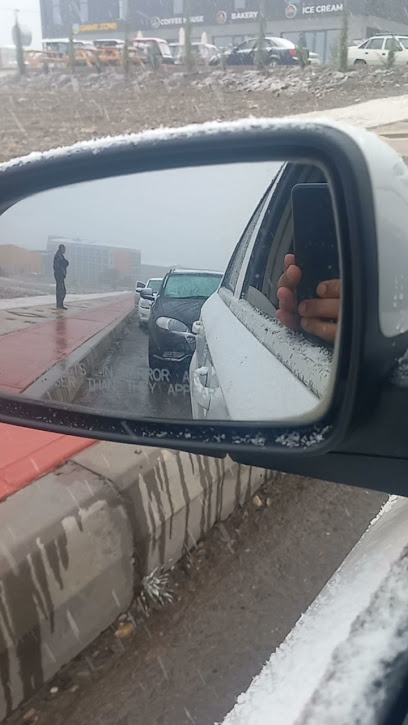
Памятник Озодлик (птица Хумо)
Discover the beauty of Ozodlik Memorial Park in Jizzakh, a peaceful retreat blending nature and history in Uzbekistan's vibrant culture.
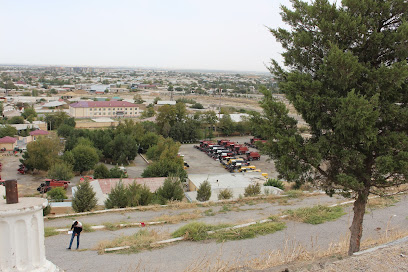
Baxshi haykali
Explore the cultural significance of Baxshi Haykali in Jizzakh, a tribute to the traditional storytellers of Uzbekistan's rich heritage.

Zomin
Explore the breathtaking landscapes and rich cultural heritage of Zomin, a hidden gem in Uzbekistan's Jizzakh Region.
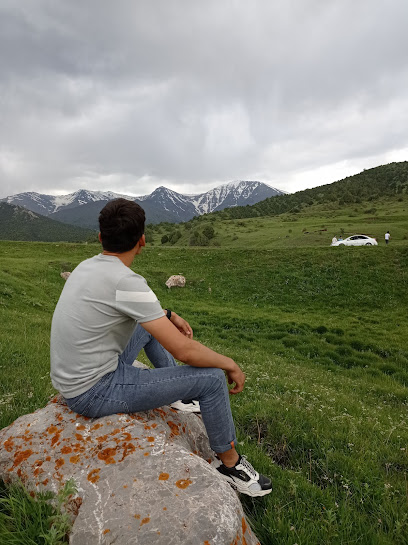
Chimqurgan
Explore the serene beauty and rich culture of Chimqurgan, a hidden gem in Uzbekistan's Jizzakh Region, perfect for nature lovers and cultural enthusiasts.
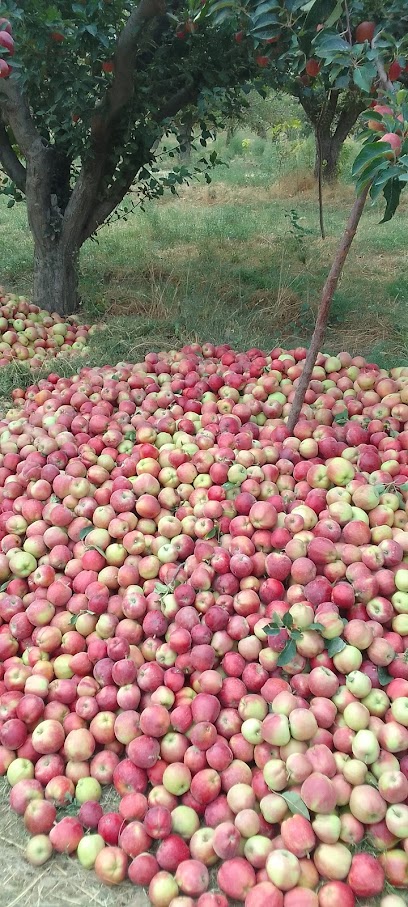
Xon togʻi
Explore Xon tog'i, a serene tourist attraction in Uzbekistan's Jizzakh Region, blending breathtaking nature with rich cultural heritage.

Aldashmon
Explore Aldashmon, a captivating tourist attraction in Jizzakh Region, Uzbekistan, where nature and culture intertwine to create unforgettable experiences.

Oʻzera
Explore O'zera in Jizzakh Region, a picturesque tourist attraction blending nature and culture for an unforgettable experience.

Essential places to dine
Dunyo
Experience authentic Uzbek cuisine at Dunyo in Jizzakh - where tradition meets taste in every dish.
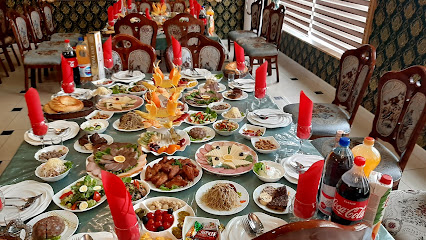
*ISLOMJON* чойхонаси
Discover the flavors of Uzbekistan at ISLOMJON Choykhonasi - your gateway to authentic local cuisine in Jizzakh.
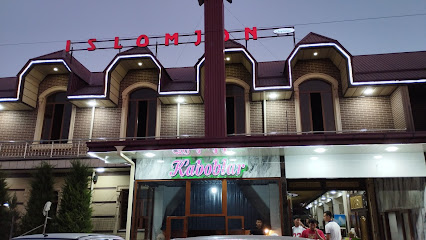
PRIM
Experience authentic Uzbek flavors at PRIM in Jizzakh - a delightful restaurant showcasing traditional dishes with a modern twist.
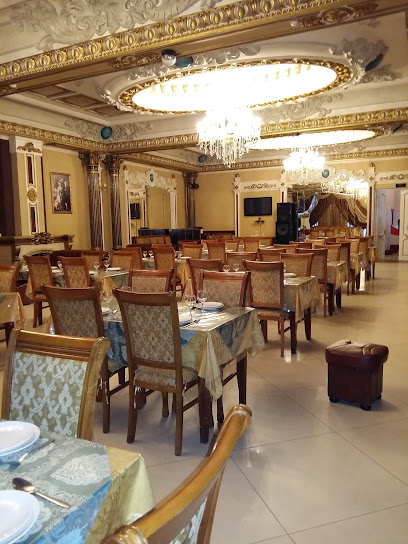
Nurbek Restaurant
Experience authentic Uzbek cuisine at Nurbek Restaurant in Jizzakh – where every dish tells a story.
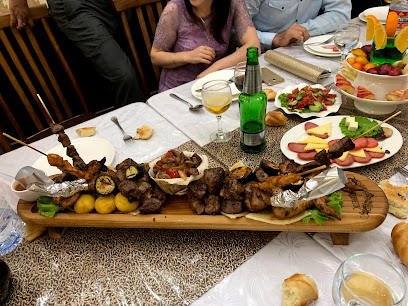
Great Garden
Discover tranquility at Great Garden in Jizzakh—your perfect family-friendly retreat surrounded by nature's beauty.
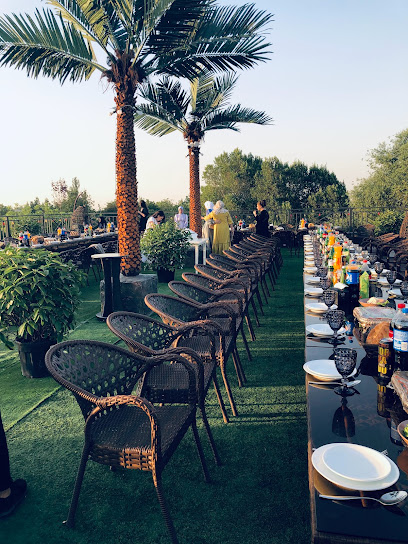
IFOR
Experience authentic Uzbek cuisine at IFOR in Jizzakh - where every meal tells a story.
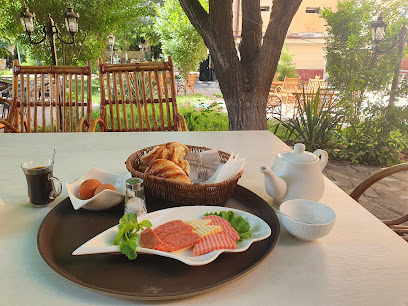
MALIKA
Experience authentic Uzbek cuisine at MALIKA in Jizzakh - where tradition meets taste in every delicious bite.
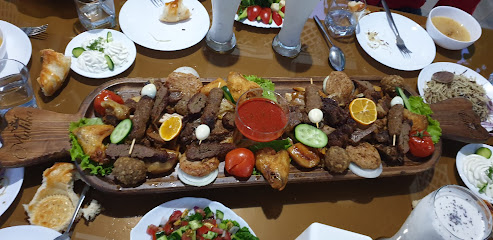
Shedevr
Experience the rich flavors of Uzbek cuisine at Shedevr in Jizzakh—where every meal is a celebration of local culture.
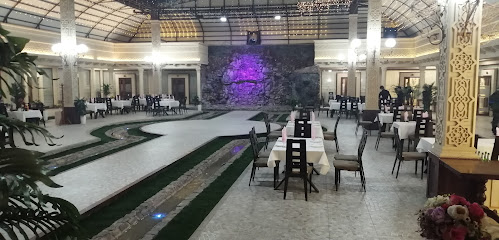
Osiyo Restaurant
Experience authentic Uzbek cuisine at Osiyo Restaurant in Jizzakh – where every dish tells a story!
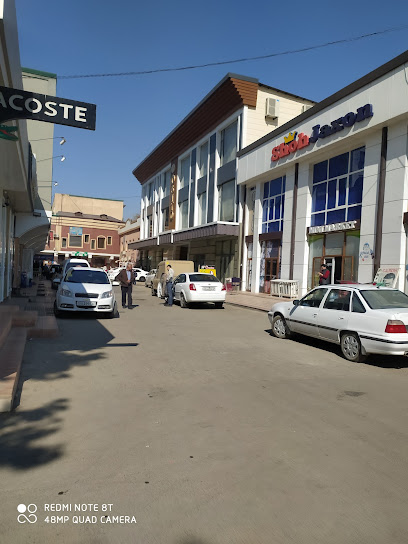
Favvora
Experience authentic Uzbek cuisine at Favvora in Jizzakh – where tradition meets flavor in every dish.
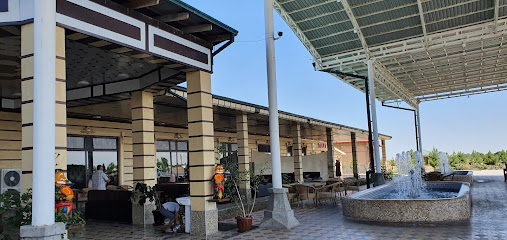
Restaurant ZA'FARON
Experience authentic Uzbek cuisine at Restaurant ZA'FARON in Jizzakh - where every dish tells a story.
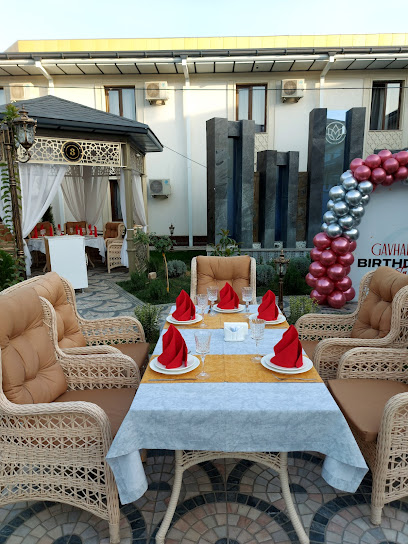
Osiyo Bozor
Discover authentic Uzbek flavors at Osiyo Bozor in Jizzakh – where every dish tells a story.
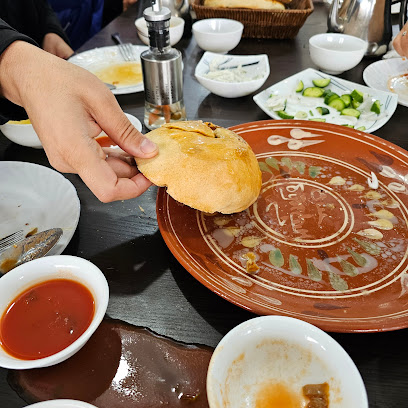
Bek choyxonasi
Experience authentic Uzbek cuisine in a warm family-friendly atmosphere at Bek Choyxonasi in Jizzakh.
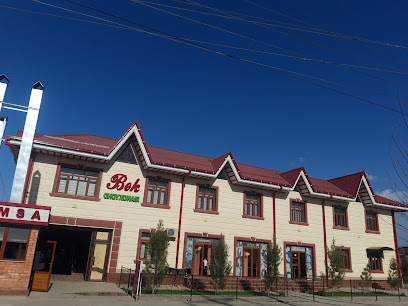
Чайхана ЭҲТИРОМ ( EHTIROM Chayxana )
Experience authentic Asian cuisine at EHTIROM Chayxana in Jizzakh, where every dish celebrates Uzbek culinary traditions.
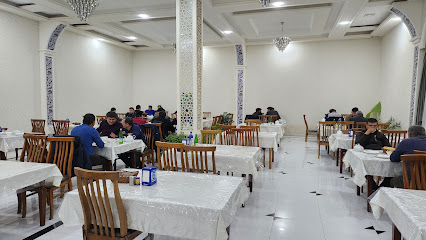
MUHTASHAM
Experience authentic Uzbek cuisine at Muhtasham - where tradition meets flavor in every dish.
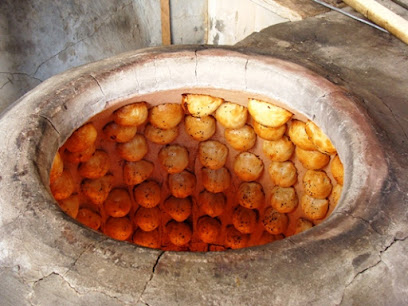
Markets, malls and hidden boutiques
Into - erkaklar kiyim Dokoni
Discover the essence of Uzbek fashion at Into - Erkaklar Kiyim Dokoni, a premier clothing store in Jizzakh with stylish men's apparel.
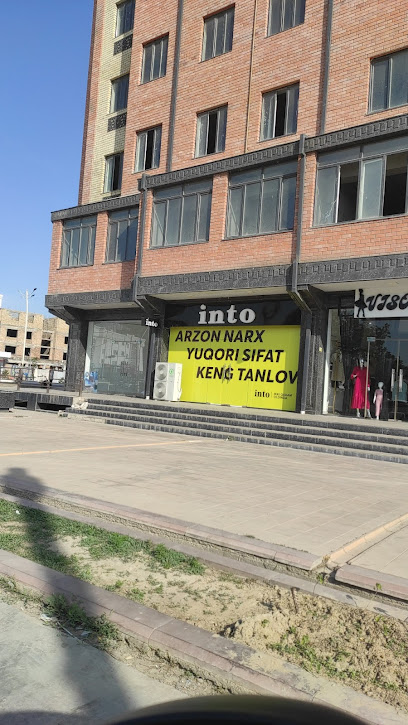
LACOSTE JIZZAX
Explore the luxurious world of scents at LACOSTE JIZZAX, the premier perfume store in Jizzakh, Uzbekistan, where every fragrance tells a unique story.
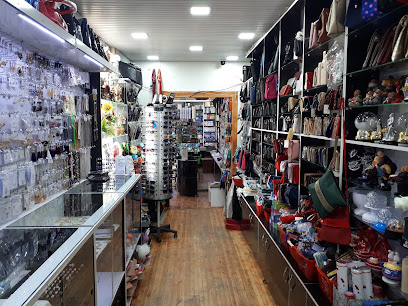
wish.store.uz
Discover the essence of Uzbek culture at Wish Store in Jizzakh, where unique treasures meet local craftsmanship and hospitality.
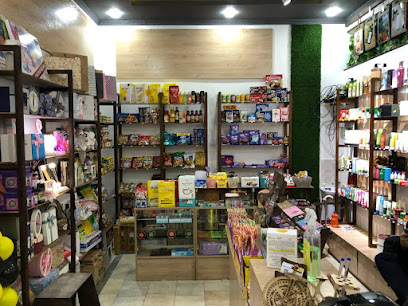
OMAD+ market
Explore the authentic flavors of Uzbekistan at OMAD+ Market, a vibrant grocery store in Jizzakh offering fresh produce and local delicacies.
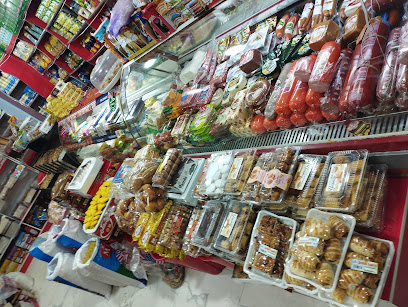
Magazin Tegen
Discover the flavors of Uzbekistan at Magazin Tegen, your go-to grocery store in Jizzakh for fresh produce and local delicacies.
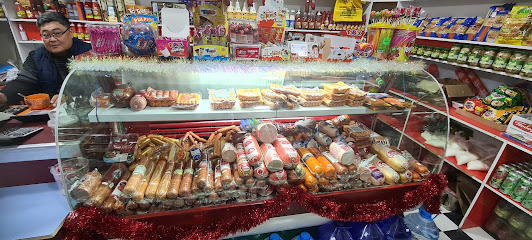
London Shop
Experience the heart of Jizzakh at this charming grocery store, offering fresh produce and local delicacies for an authentic taste of Uzbekistan.
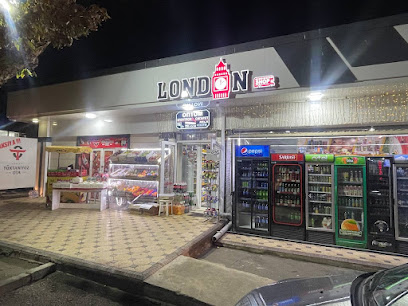
Farog'at ona market
Experience the vibrant culture and flavors at Farog'at Ona Market, Jizzakh's bustling hub of local produce and crafts.

Minimarket
Explore local flavors and culture at Jizzakh's Minimarket, where authentic Uzbek products await your discovery.
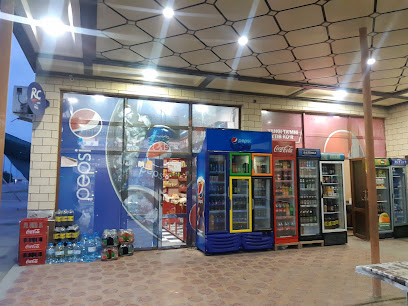
Magazin Zhenskoy Odezhdy
Explore unique women's fashion at Magazin Zhenskoy Odezhdy in Jizzakh, where style meets cultural charm in every piece.
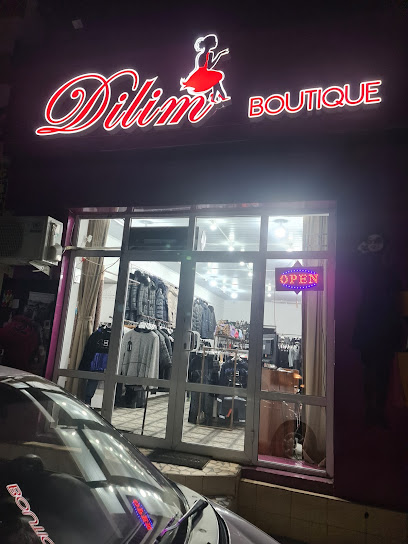
Hayot Kuchi
Experience holistic wellness at Hayot Kuchi, the premier organic drug store in Jizzakh, Uzbekistan, where natural health products await.
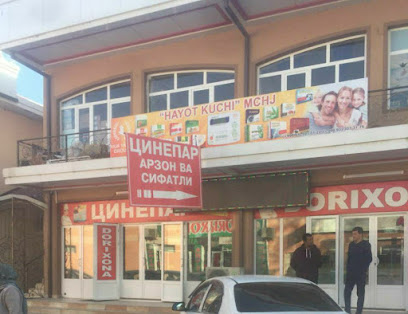
Dilrabo shopping
Discover the rich cultural fashion of Uzbekistan at Dilrabo Shopping in Jizzakh, a vibrant clothing store filled with unique styles and local craftsmanship.

Pchelka
Explore Pchelka in Jizzakh, a vibrant store showcasing local crafts and unique souvenirs for an unforgettable shopping experience.

APELSIN
Explore APELSIN in Jizzakh for unique souvenirs, local goods, and an authentic taste of Uzbekistan's vibrant culture.
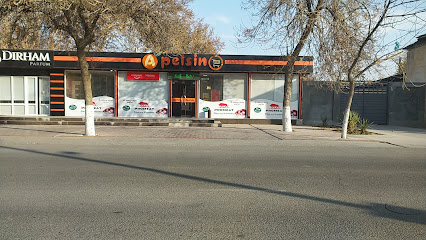
Alibazar -internet magazin
Explore Alibazar in Jizzakh for an unforgettable shopping experience filled with local and contemporary fashion choices.
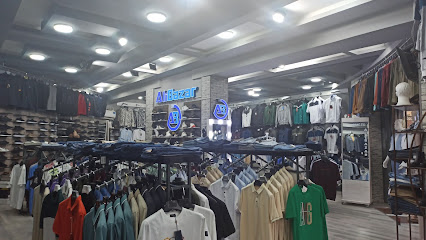
Adamant
Explore Adamant, a charming store in Jizzakh, Uzbekistan, offering unique local crafts and souvenirs that capture the essence of Uzbek culture.

Essential bars & hidden hideouts
Oduvanchik
Discover the lively Oduvanchik beer hall in Jizzakh, where local brews and a vibrant atmosphere create unforgettable experiences.
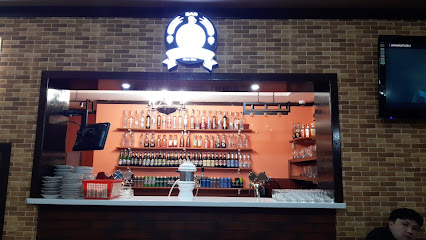
Illuzion Shisha Lounge Bar
Experience the vibrant atmosphere of Illuzion Shisha Lounge Bar in Jizzakh, Uzbekistan, where relaxation meets flavorful shisha and refreshing drinks.
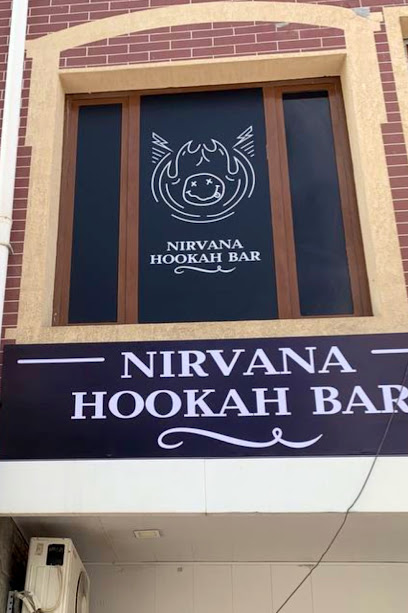
Shashlik. Uz
Discover the authentic taste of Uzbek barbecue at Shashlik. Uz, a cozy bar in Jizzakh, serving mouthwatering skewers and local delicacies.
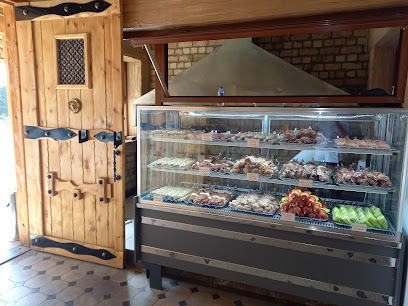
Sulola Bar
Discover the lively atmosphere and unique flavors of Jizzakh's Sulola Bar, a perfect spot for socializing and enjoying local drinks.

SHOHONA Restoran IAA
Experience the authentic taste of Uzbekistan at SHOHONA Restoran IAA in Jizzakh, where traditional flavors and warm hospitality meet.
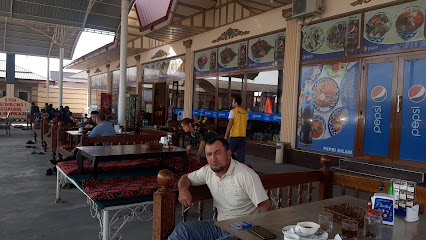
Shoxsaroy
Discover the charm of Shoxsaroy, a cozy bar in Jizzakh, offering local drinks and a warm atmosphere perfect for relaxation and socializing.

Kõhinur tõyhonasi
Discover the lively charm of Kõhinur Tõyhonasi, a vibrant bar in Jizzakh Region where local culture and hospitality meet for an unforgettable experience.

Dilorom club
Discover the vibrant nightlife and cultural charm of Dilorom Club in Jizzakh, Uzbekistan, where every night is a celebration.
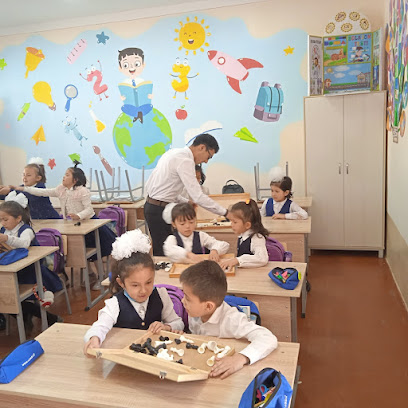
Кафе-Бар ,,komiljon,,
Experience the vibrant flavors and relaxed atmosphere of Café-Bar 'Komiljon' in Jizzakh, Uzbekistan, a favorite spot among locals and travelers alike.
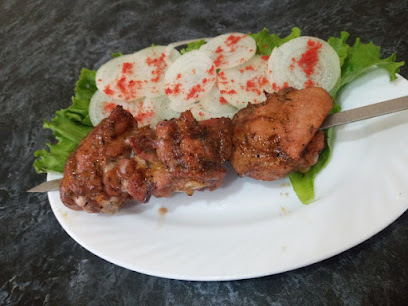
Anor
Experience the vibrant atmosphere of Anor, a bar in Jizzakh, Uzbekistan, where local culture and refreshing drinks come together.
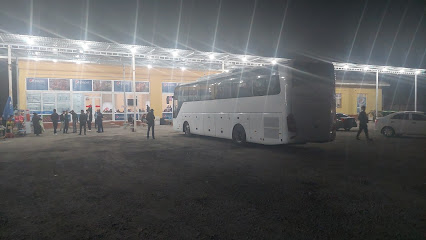
Firmennyy Bar Pivovarni Khan
Discover the vibrant atmosphere and local brews at Firmennyy Bar Pivovarni Khan, a charming beer garden in Jizzakh, Uzbekistan.
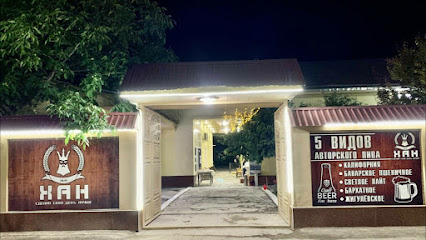
SULTAN GARDEN
Discover the serene Sultan Garden in Jizzakh, a beautiful bar offering refreshing drinks and a tranquil atmosphere amidst lush landscapes.
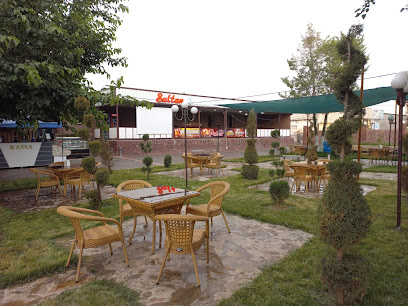
Navo tuyxonasi
Discover the authentic taste of Uzbekistan at Navo Tuyxonasi, a vibrant bar in Jizzakh offering local drinks and a welcoming atmosphere.

Toshkent
Explore the vibrant capital of Uzbekistan, Toshkent, where history, culture, and modernity intertwine in a delightful travel experience.
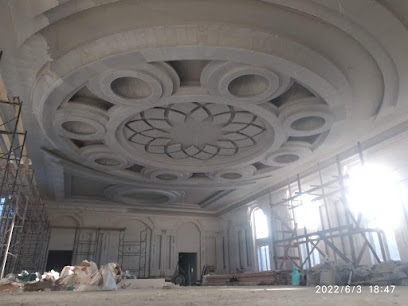
Shodiyor Pivo
Experience the vibrant nightlife of Jizzakh at Shodiyor Pivo, a bar offering local flavors and a warm, inviting atmosphere.

Local Phrases
-
- HelloСалом
[Salom] - GoodbyeХайр
[Khayr] - YesҲа
[Ha] - NoЙўқ
[Yo'q] - Please/You're welcomeИлтимос
[Iltimos] - Thank youРаҳмат
[Rahmat] - Excuse me/SorryКечиринг
[Kechiring] - How are you?Қалсизми?
[Qalsizmi?] - Fine. And you?Жуда ёхуд. Сиз чиқсизми?
[Juda yakhud. Siz chiqsizmi?] - Do you speak English?Инглиз тилини биласизми?
[Ingiliz tilini bilasizmi?] - I don't understandМени фаҳмайман
[Meni fahmayman]
- HelloСалом
-
- I'd like to see the menu, pleaseМенюни кўрмоқчиман, илтимос
[Menyuni ko'rmoqchiman, iltimos] - I don't eat meatМен гўсht ёмайман
[Men g'asht yomayman] - Cheers!Саҳро
[Sahro] - I would like to pay, pleaseТўлов қилишни истайман, илтимос
[Tolov qilishni istayman, iltimos]
- I'd like to see the menu, pleaseМенюни кўрмоқчиман, илтимос
-
- Help!Ёрдам!
[Yordam!] - Go away!Ёлдан кетинг!
[Yoldan keting!] - Call the Police!Полицияни чақиринг!
[Policiyani chaqiring!] - Call a doctor!Ёрдамчи докторни чақиринг!
[Yordamchi doktorni chaqiring!] - I'm lostМен йўлни йўқолдим
[Men yo'lni yo'qoldim] - I'm illМен касалман
[Men kasalman]
- Help!Ёрдам!
-
- I'd like to buy...Сотиб олишни истайман...
[Sotib olishni istayman...] - I'm just lookingФақат кўриб тураман
[Faqat ko'rib turaman] - How much is it?Неччики?
[Nechchiki?] - That's too expensiveУшбу очиқ
[Ushbu ochiq] - Can you lower the price?Нархни тўлдиришингиз мумкинми?
[Narxni to'ldirishingiz mumkinmi?]
- I'd like to buy...Сотиб олишни истайман...
-
- What time is it?Соат неччики?
[Soat nechchiki?] - It's one o'clockБир соат
[Bir soat] - Half past (10)Оннинг ортиги
[Onning ortigi] - MorningТун
[Tun] - AfternoonКеч
[Kech] - EveningКечаси
[Kechasi] - YesterdayКеча
[Kecha] - TodayБугун
[Bugun] - TomorrowЭртага
[Ertaga] - 1Бир
[Bir] - 2Икки
[Ikki] - 3Уч
[Uch] - 4Тўрт
[To'rt] - 5Беш
[Besh] - 6Олти
[Olti] - 7Ётти
[Yetti] - 8Саккиз
[Sakkiz] - 9Тўqqız
[To'qqiz] - 10Он
[On]
- What time is it?Соат неччики?
-
- Where's a/the...?... қаерда?
[... qaerda?] - What's the address?Манзили қандай?
[Manzili qanday?] - Can you show me (on the map)?Менга кўрсатасизми (ҳаритада)?
[Menga ko'rsatasizmi (haritada)?] - When's the next (bus)?Кейингиси (автобус) қачон келади?
[Keyingisi (avtobus) qachon keladi?] - A ticket (to ....)Чиқим (.... га)
[Chiqim (.... ga)]
- Where's a/the...?... қаерда?
History of Djizak
-
Djizak, nestled in the fertile Zeravshan Valley, has a history that stretches back thousands of years. The region was a crucial part of the Silk Road, serving as a crossroads of cultures and trade between East and West. Archaeological findings suggest that settlements in the area date back to the Bronze Age, with evidence of advanced agrarian societies.
-
During the first millennium BCE, the area around Djizak was part of the Sogdian civilization. The Sogdians were renowned traders, and their influence extended across Central Asia. Djizak, known as 'Dizak' during this period, was an important commercial hub where merchants exchanged goods such as silk, spices, and precious stones.
-
In the 7th and 8th centuries CE, the region witnessed the arrival of Arab conquerors who brought Islam to Central Asia. Djizak became part of the Umayyad and later the Abbasid Caliphates, integrating into the Islamic world. The city saw the construction of mosques, madrasas, and caravanserais, which facilitated the spread of Islamic culture and education.
-
The Mongol invasion in the 13th century marked a turbulent period for Djizak. Genghis Khan's forces swept through Central Asia, and the city was subjected to destruction and upheaval. However, Djizak eventually recovered and became part of the Chagatai Khanate, one of the successor states of the Mongol Empire.
-
Under the rule of Timur (Tamerlane) in the 14th century, Djizak experienced a cultural and economic renaissance. Timur's patronage of the arts and architecture led to the construction of magnificent buildings and the flourishing of intellectual life. Djizak became a vital link in Timur's vast empire, connecting Samarkand and Bukhara to the rest of his dominions.
-
By the late 19th century, Djizak fell under Russian control as part of the broader expansion of the Russian Empire into Central Asia. The city saw significant changes during this period, including the introduction of modern infrastructure and industry. Following the Russian Revolution, Djizak became part of the Soviet Union, enduring the political and social transformations that characterized Soviet rule.
-
With the dissolution of the Soviet Union in 1991, Djizak became part of the newly independent Republic of Uzbekistan. The city has since undergone rapid development and modernization while striving to preserve its rich historical and cultural heritage. Today, Djizak is a vibrant city that reflects the diverse influences of its storied past.
Djizak Essentials
-
Djizak is located in central Uzbekistan, and the nearest international airport is Tashkent International Airport, approximately 200 kilometers away. From Tashkent, you can take a train, bus, or taxi to Djizak. The train journey is quite scenic and takes around 3 to 4 hours. Buses are also available, though they might take longer due to frequent stops. Taxis offer the quickest but most expensive option, taking around 2 to 3 hours depending on traffic.
-
Djizak has a variety of transportation options. Local taxis and buses are readily available and relatively inexpensive. For a more authentic experience, you can take a shared taxi (marshrutka), which is a common mode of transport for locals. Renting a car is another option, providing flexibility to explore the surrounding areas. While many attractions are within walking distance, having a vehicle can be convenient for longer trips.
-
The official currency in Uzbekistan is the Uzbekistani Som (UZS). Credit cards are accepted in larger hotels and restaurants, but it is advisable to carry cash, especially in smaller establishments and rural areas. ATMs are available in Djizak, but it's wise to withdraw sufficient cash in Tashkent before traveling to ensure you have enough funds. Currency exchange services are also available in Djizak.
-
Djizak is generally a safe destination for tourists. However, like any travel destination, it is advisable to take standard precautions. Avoid walking alone at night in unfamiliar areas and keep an eye on your belongings in crowded places. While there are no specific high-crime areas targeting tourists, it is always best to stay vigilant and aware of your surroundings.
-
In case of emergency, dial 101 for fire, 102 for police, and 103 for medical assistance. The local police station and medical facilities are available in Djizak. It is recommended to have travel insurance that covers medical emergencies. For minor health issues, there are pharmacies in the town where you can purchase over-the-counter medications.
-
Fashion: Do dress modestly, especially when visiting religious sites. Avoid wearing revealing clothing. Religion: Do respect local customs and traditions. Always cover your head when entering mosques. Public Transport: Do be respectful and give up your seat to elderly passengers. Don’t eat or drink on public transport. Greetings: Do greet people with a handshake. A slight bow of the head is also a sign of respect. Eating & Drinking: Do try local delicacies and accept food offerings graciously. Don’t refuse hospitality, as it is considered impolite.
-
To experience Djizak like a local, visit the local bazaars where you can buy fresh produce and traditional Uzbek goods. Engage with locals, as they are often friendly and willing to share stories about the town's history and culture. Don't miss visiting the Nurata Mountains and the Aydarkul Lake, which offer breathtaking natural scenery. For a unique experience, attend a local festival or cultural event to immerse yourself in the rich traditions of the area.
Nearby Cities to Djizak
-
Things To Do in Jizzakh
-
Things To Do in Panjakent
-
Things To Do in Samarkand
-
Things To Do in Istaravshan
-
Things To Do in Shakhrisabz
-
Things To Do in Khujand
-
Things To Do in Tashkent
-
Things To Do in Tursunzoda
-
Things To Do in Dushanbe
-
Things To Do in Vahdat
-
Things To Do in Chirchiq
-
Things To Do in Angren
-
Things To Do in Navoi
-
Things To Do in Qarshi
-
Things To Do in Shymkent






